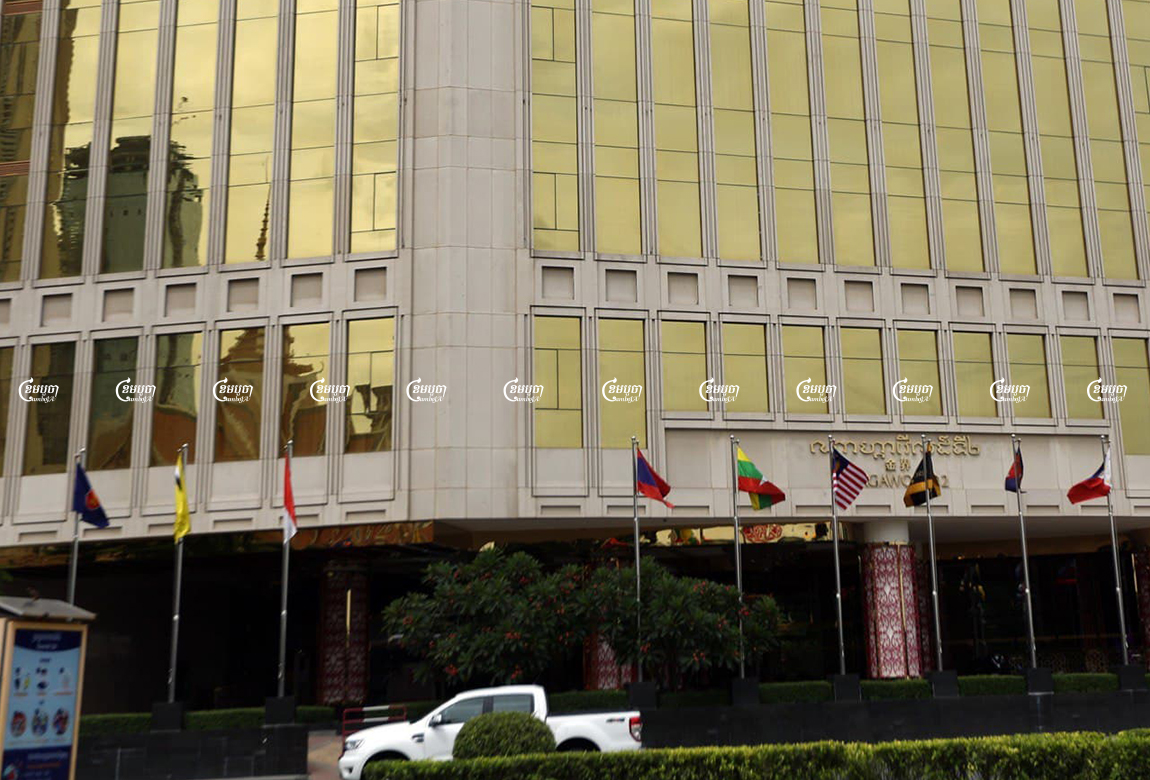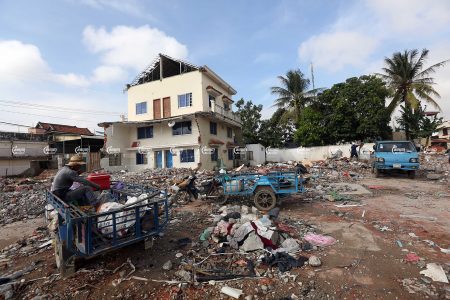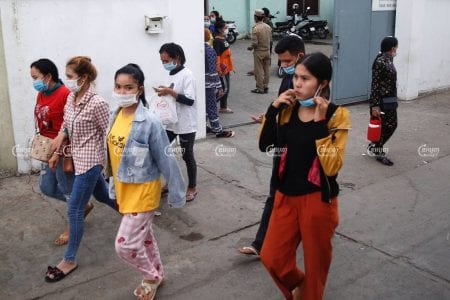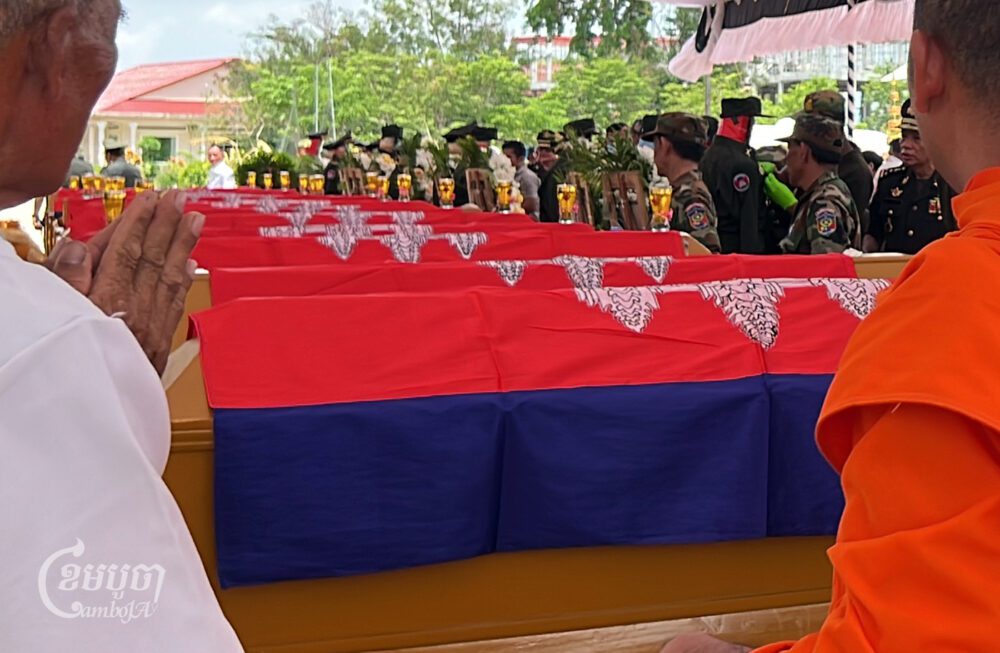The Cambodian government is moving ahead in thinning out the country’s overcrowded gaming industry by setting its first minimum capital requirement for casinos.
Officials say the move will select for better-qualified gambling investments and improve the economic benefits of the sector, which business insiders say has otherwise contributed to soaring crime rates and other social ills. The capital requirements are part of the Law on the Management of Commercial Gambling passed in 2020, which itself was written to curb the booming casino industry when it increasingly served the online gambling market.
According to a sub-decree signed August 26 by Prime Minister Hun Sen, the government will now require minimum capital holdings of $200 million for integrated commercial gambling centers, which also include tourism facilities such as hotel rooms, and $100 million for standalone casinos.
The sub-decree also requires casino owners who had already secured operational licenses before the gambling law came into effect to meet the capital requirements in order to renew their licensing.
Ros Phearun, a deputy director in charge of the casino department at the Ministry of Economy and Finance, said the capital requirement would limit the number of gaming centers in Cambodia.
“We want a worthwhile investment that starts with this level of capital, which will lead to more transparent management in the industry,” he said.
Phearun said the country is currently home to 200 commercial gaming businesses, including both casinos and those that provide online gambling. However, all of those providers have been quieted in the past year due to the outbreak of COVID-19, during which the government required casinos to completely halt their operations. Before the pandemic, the government in 2019 had restricted online gaming.
Phearun said the government so far has not recognized or registered any commercial gambling as part of an integrated gambling venue.
“However, some businesses have already met the requirement to be an integrated center and are preparing the process, which will gradually start from 2022,” he added.
Phearun said that, under the new law, the government plans to collect more than $100 million per year in tax revenue from the gambling industry, an increase of the former annual total of $70-80 million.
However, due to the mass closure of casinos prompted by COVID-19, Phearun said tax revenues from gambling had effectively halved in 2020. The ministry has yet to receive tax revenue declarations from gambling companies, he explained, but will resume auditing in 2022.
The government last year approved the Gambling Law in part to make the sector more competitive and attract more integrated commercial gambling developments, rather than standalone casinos.
Under the new law, integrated commercial gambling centers and casinos will both pay taxes based on gross gaming revenue. The integrated resorts will be eligible for licenses of up to 20 years, while the casino-only establishments will be capped at five-year licenses.
David Van, a senior associate for public-private partnerships at the sustainable development firm Platform Impact, said more than 100 casino licenses were reportedly issued at a rapid pace in recent history.
Van was skeptical of the role gambling could play in building the Cambodian economy.
“I don’t believe much in gambling being able to contribute to the economy,” he said. “Besides, the most profitable casino [NagaWorld] in the capital city, based on its full disclosure as a publicly listed entity in Hong Kong, only paid paltry taxation to the government for decades.”
He said betting big on casinos has come up with social problems and safety issues as evidenced by sensational media coverage of gang killings and kidnappings, especially in casino-heavy Sihanoukville.
Van said the government should also learn from Singapore’s model of casino management, which he said was well-done.
“They were smart enough to apply strict conditions of issuing only two casino licenses in return for the licensees to fully develop an entire area , serving the country economically through tourism — not merely gambling per se,” he said.
Most casinos in Cambodia are concentrated in the border provinces and Sihanoukville, where Chinese investment projects are also located.
The influx of Chinese development in Sihanoukville since 2018 is part of China’s Belt and Road Initiative, Beijing’s ambitious global program for expanding its international trade opportunities and promoting infrastructure development.
A research study released in May from the Global Initiative Against Transnational Organized Crime, noted the Chinese initiative has been linked to increased risks of illicit trade, corruption and crime, especially for weaker economies such as that of Cambodia. The report had specific findings for the city of Sihanoukville.
“[Sihanoukville] has been transformed through substantial Chinese investment into an enclave of Chinese-run casinos, restaurants, high-rise office buildings and power plants, and is becoming increasingly established as an illicit economic hub,” the report stated.
Anthony Galliano, group CEO of financial services company Cambodian Investment Management Holding, said the casino industry is cash-intensive and highly competitive, making it vulnerable to criminal exploitation, money laundering and the financing of terrorism.
He said the government’s new capital requirement is a positive step forward in improving the supervision of the gambling industry with an emphasis of better safety and security.
“Sihanoukville is set to be the Macau of Southeast Asia and will be a critical cog in the economy, not only as a revenue source, but in providing diversity in tourism products, adding entertainment and gambling in a beach-city setting,” he said.
Galliano also said the minimum capital requirement will discourage smaller “cowboy operations”, reduce illegal online gambling, and not only mitigate crime, but provide more resources for improved regulation by attracting larger, more established operations with better governance.
“Increased regulation and tougher licensing requirements were needed to combat crime, gangs, trafficking, and other vices,” he said. “I commend the government for recognizing the emerging problems and enacting news laws to tackle them.”










